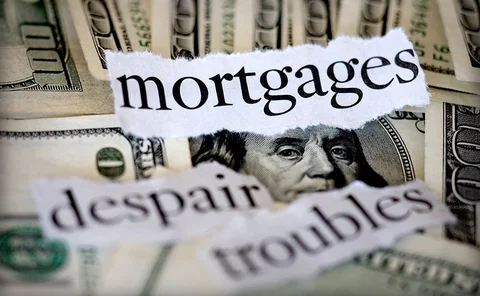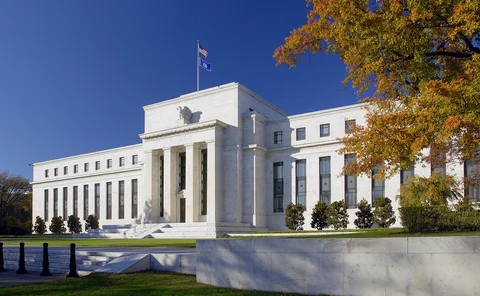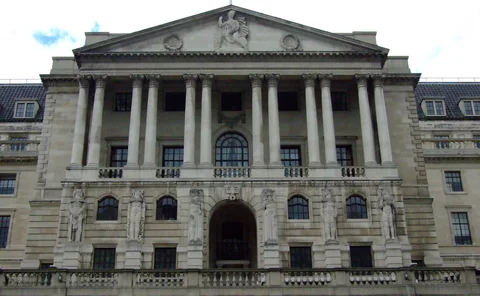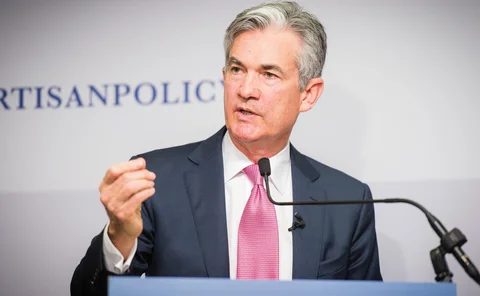Leverage ratios
NY Fed research ‘stress tests’ household balance sheets
Authors say it is “crucial” to track household leverage; vulnerability in the US “remains elevated”
Leverage ratio disincentives clearing – BoE paper
Leverage ratio appears to have made some banks less willing to take on new clients
BoE paper models bank runs in general equilibrium
Daisuke Ikeda finds regulations must be comprehensive to prevent risk shifting
Is the US dismantling Dodd-Frank?
Richard Heckinger asks whether recent amendments to the Dodd-Frank Act amount to technical tweaks or full-scale rollback
Fed proposes changing leverage ratios for largest US financial firms
Proposals would make leverage ratios “more closely tailored” to firm’s risk profile, Fed argues
BIS economists find frictions in banks’ dollar funding
Authors investigate wide divergence in the business models of European and Japanese banks
Global leverage may be higher than supervisors realise – IMF paper
Standard measures of leverage are too focused on balance sheets, researchers say
Fed hikes have created ‘paradoxical’ easing – BIS
Review draws parallels between current episode and “Greenspan conundrum” of mid-2000s
More work needed on supply channel of finance – BIS paper
Demand-side links between the financial and real sectors are better understood, say authors
PBoC’s Zhou warns China’s leverage is ‘relatively high’
Governor says corporate sector debt has ballooned partly due to local government financing vehicles
Fixing the banks is not enough – Adair Turner
Robust banks can supply credit but the real damage from financial crisis is caused by lack of credit demand, former FSA chief says
Zhou did not get what he wanted, but has not left empty-handed
The key five-year meeting in China has resulted in shift of focus to systemic risk and regulation, and away from liberalisation and innovation
Regulations have net benefit despite cost to dealers – BoE paper
Working paper finds leverage requirements have raised costs for dealers in normal times, with the impact larger than earlier studies imply
Basel Committee flags shortfalls in implementation
European Union is yet to fully comply with the liquidity coverage ratio, while many jurisdictions are lagging behind in other areas
Fixing the ‘perverse incentives’ in the SLR
Richard Heckinger warns the US’s supplementary leverage ratio in its current form discourages banks from using central counterparties
Fed’s Powell looks for ways to reduce ‘unnecessary burden’ of regulation
Fed governor tells senators he sees room in some aspects of post-crisis reforms to ease the burden on banks, though he stresses the need for “vigilance” against new risks
BIS’s Coen warns of danger in delays as output floors remain stuck
Long phase-in periods increase risk of “dilution or backtracking”, says BCBS secretary-general; remains vague on timetable for Basel III completion
Riksbank researchers flag benefits of major capital boost
Significant increase in the leverage ratio for Swedish banks could bring net social benefits, study finds
ECB issues guidance on leveraged transactions
Senior management must have a “comprehensive” view of all leveraged loans
Let the market regulate banks – FDIC’s Hoenig
Vice-chairman offers proposal that would take an axe to risk-based capital, stress testing and parts of the Volcker rule
Growth of shadow banks led by risky investment vehicles – FSB
Shadow banks continue to gain ground, with those offering liquidity and maturity transformation showing some of the fastest growth
Extended monetary easing in US has larger impact abroad – paper
IMF paper examines the impact of periods of prolonged monetary easing on risk-taking behaviour; leverage ratio and other measures of vulnerability increase
Croatian governor warns of further financial crises
It is probably time for central banks to “get out” of expanded balance sheets, Boris Vujčić says
Tax cuts affect bank leverage and liabilities – BIS paper
Tax cuts have different effects on different banks, authors find; better-capitalised banks increase their assets, while weaker ones clean up their balance sheets





















